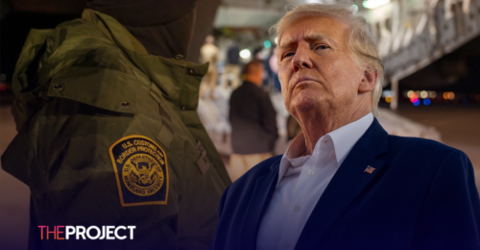The U.S. and Colombia have pulled back from the brink of a trade war after the White House said the South American nation had agreed to accept military aircraft carrying deported migrants.
U.S. President Donald Trump had threatened tariffs and sanctions on Colombia to punish it for earlier refusing to accept military flights carrying deportees as part of his sweeping immigration crackdown.
However, in a statement late Sunday, the White House said Colombia had agreed to accept the migrants and that Washington would not impose its threatened penalties.
Draft orders imposing tariffs and sanctions on Colombia would be "held in reserve and not signed unless Colombia fails to honour this agreement", it said.
"Today's events make clear to the world that America is respected again. President Trump ... expects all other nations of the world to fully co-operate in accepting the deportation of their citizens illegally present in the United States," the White House statement said.
Colombian Foreign Minister Luis Gilberto Murillo said in a statement late Sunday, "We have overcome the impasse with the US government."
"The government of Colombia ... has the presidential plane ready to facilitate the return of Colombians who were going to arrive in the country this morning on deportation flights."
The statement did not specifically say the agreement included military flights but did not contradict the White House announcement.
The Colombian statement said Murillo and Colombia's ambassador to the U.S. will travel to Washington to follow up on agreements that led to the exchange of diplomatic notes between the two governments.
Washington's draft measures, now on hold, included imposing 25 per cent tariffs on all Colombian goods coming into the U.S., which would go up to 50 per cent in one week; a travel ban and visa revocations on Colombian government officials; and emergency treasury, banking and financial sanctions.
Trump also threatened to direct enhanced border inspections of Colombian nationals and cargo.
Ahead of the announcement of an agreement on the flights, a State Department spokesperson said the U.S. had suspended visa processing at the U.S. embassy in Bogota.
Colombia is the third-largest U.S. trading partner in Latin America.
The US is Colombia's largest trading partner, mostly due to a 2006 free trade agreement that generated $US33.8 billion ($A53.7 billion) in two-way trade in 2023 and a $US1.6 billion ($A2.5 billion) U.S. trade surplus, according to U.S. Census Bureau data.
Alejo Czerwonko, chief investment officer for emerging markets Americas at UBS Global Wealth Management, said Colombia relied on access to the U.S. market for about a third of its exports, or about 4.0 per cent of its GDP.
Colombian President Gustavo Petro earlier condemned the military deportation flights and said he would never carry out a raid to return handcuffed Americans to the U.S.
"We are the opposite of the Nazis," he wrote in a post on social media platform X.
He also said, however, that Colombia would welcome home deported migrants on civilian planes and offered his presidential plane to facilitate their "dignified return".
Trump declared illegal immigration a national emergency and has imposed a crackdown since taking office on January 20.
He directed the U.S. military to help with border security, issued a broad ban on asylum and took steps to restrict citizenship for children born on U.S. soil.
The use of U.S. military aircraft to carry out deportation flights is unusual.
U.S. military aircraft carried out two flights, each with about 80 migrants, to Guatemala on Friday.
Mexico also refused a request last week to let a U.S. military aircraft land with migrants.
Trump has said he is thinking about imposing 25 per cent duties on imports from Canada and Mexico on February 1 to force further action against illegal immigrants and fentanyl flowing into the U.S.
Brazil's foreign ministry on Saturday condemned "degrading treatment" of Brazilians after migrants were handcuffed on a commercial deportation flight.
Upon arrival, some passengers also reported mistreatment during the flight, according to news reports.
U.S. officials did not reply to requests for comment about Brazil.
With AAP.





























